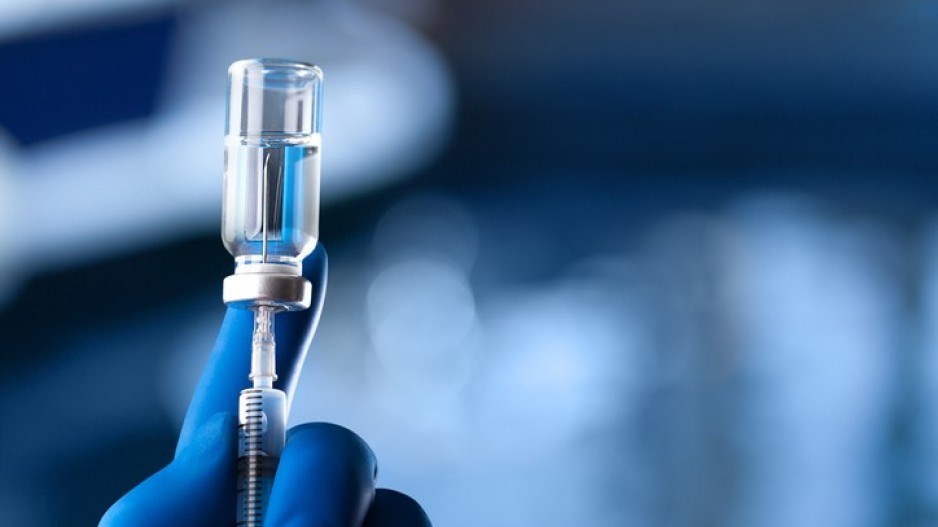A record number of British Columbians received vaccinations in a single day this week as the province prepares to ramp up mass immunization efforts in April.
Dr. Reka Gustafson, B.C.'s deputy provincial health officer, revealed during a Friday (Feb. 19) briefing that 12,250 people received their shots a day earlier.
To date, the province has administered 192,942 doses since vaccines began arriving in mid-December.
Of those vaccinations, 36,923 were for a second dose. Vaccines from both Pfizer Inc. and Moderna Inc. require two doses for maximum efficacy.
“This is very good news,” said Gustafson, who was filling in for provincial health officer Dr. Bonnie Henry.
Health Minister Adrian Dix said more than half of the 12,250 doses administered on Thursday — 6,271 — were second doses.
“The only issue holding back the immunization campaign at this stage is supply,” he said during the media briefing.
Canada has experienced a significant shortfall of vaccines in recent weeks amid delays from both Pfizer and Moderna.
But federal officials have confirmed over the past week that Pfizer and Moderna will meet their contracted guarantee of six million total doses by the end of March.
Another 23 million doses from the competing manufacturers are due this spring.
Pfizer is due to deliver 64,350 doses to B.C. next week, followed by 60,840 doses the following four weeks.
That will drop slightly the final week of March when the pharmaceutical giant is scheduled to deliver 59,670.
Moderna is expected to deliver 16,400 doses to B.C. next week, but the exact allocations after that remain murky as Ottawa awaits specifics from the manufacturer.
Meanwhile, more jurisdictions across the globe have been delaying the intervals between the first and second doses in an effort to inoculate as many people as possible. This strategy would provide protection to more people, but with less efficacy.
Gustafson said there is a “rigorous public health debate on that.”
Earlier this week pair of Canadian doctors raised the profile of such a strategy in a correspondence submitted to the New England Journal of Medicine.
“With such a highly protective first dose, the benefits derived from a scarce supply of vaccine could be maximized by deferring second doses until all priority group members are offered at least one dose,” Dr. Danuta M. Skowronski of the B.C. Centre for Disease Control and Dr. Gaston De Serres of the Institut National de Sante Publique du Quebec wrote in a piece published on Wednesday.
Gustafson said health officials are reviewing the data “very, very carefully and evidence is accumulating to support that as a potential approach for maximizing protection in the population.”
Amid ongoing shortages of vaccine deliveries, B.C. has already been delaying the interval between two doses.
Both vaccine manufacturers recommend intervals of about three to four weeks between doses. B.C. initially stretched that interval to 35 days in January and then to 42 days shortly afterward.
Vaccinations for the broader population are set to roll out beginning in April once the province’s most at-risk individuals and frontline healthcare workers are immunized in the coming weeks.
After elderly British Columbians 80 and above, Indigenous seniors over the age of 65 and other hospital staff receive vaccines by the end of March, the province will move onto those who are 75-79 years old.
Vaccinations will then carry on in descending five-year age brackets.
The province’s initial rollout plan is based on the assumption that it will only have access to the Moderna and Pfizer vaccines.
But if more vaccines are approved by Health Canada, provincial officials have previously stated that B.C. will ramp up immunization plans for the 4.3 million residents eligible for vaccinations.
Those under the age of 18 are currently not eligible for vaccinations, but that could change if more vaccines are given the green light by regulators.



